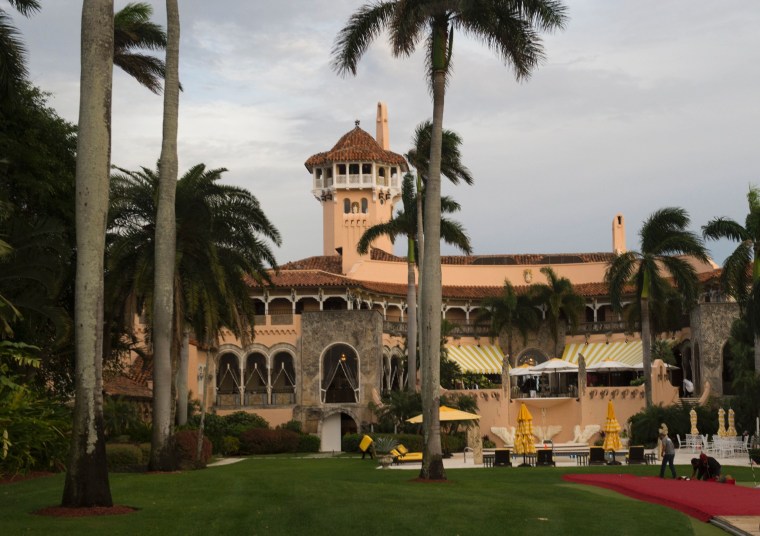Security concerns over Mar-a-Lago, the private Florida club Donald Trump continues to own and profit from, are not entirely new. Two months into the Republican's presidency, Politico reported on the club being an espionage risk and a "heaven" for spies. Two months later, Pro Publica ran a related piece with a ominous headline: "Any Half-Decent Hacker Could Break Into Mar-a-Lago."
It's against this backdrop that the questions grew a little more serious this week.
A Chinese citizen who tried to enter President Donald Trump's Mar-a-Lago club Saturday carrying a thumb drive containing malicious software is being charged federally with lying to a Secret Service officer and having knowingly entered a restricted building.When Yujing Zhang attempted to enter the club in Palm Beach, Florida, she was stopped by Secret Service agents at a security checkpoint, according to court documents.She showed two Chinese passports with her name and photograph to the agents, who then took her to Mar-a-Lago security to see if she was a member of the club.Mar-a-Lago allowed Zhang to enter, according to the documents, because part of her name matched that of a member of the club. Zhang gave a nondefinitive answer when asked if that member was her father, according to the court documents, and was admitted by the club "due to a potential language barrier issue." She was taken by shuttle to a second checkpoint.
It was at this point that the woman was stopped before going further -- a receptionist was on the ball -- and upon further questioning from the Secret Service, Yujing Zhang said she hoped to speak with members of the Trump family about Chinese/U.S. economic relations.
As Rachel noted on the show last night, the woman was carrying four cell phones, an external hard drive, a laptop and a thumb drive that the Secret Service discovered was infected with some sort of malware. She had all of that with her when she nearly entered the president's private club while the president was there.
About a decade ago, a couple of aspiring reality-TV stars worked their way into a White House state dinner, and the controversy that soon followed generated major headlines for quite a while. It's pretty easy to make the case that Yujing Zhang story is more important.
All of this news, of course, comes on heels of reports about Cindy Yang, a Republican donor who runs an investment business that has offered to sell Chinese clients access to the Republican president and his family.
Of course, if the president had divested from his business, the security risks wouldn't be so significant.
Meanwhile, the Washington Post reports today that several Senate Democratic leaders are asking the FBI "to determine whether the secure facilities and equipment President Trump uses to access classified information while at his Florida resort are vulnerable to foreign exploitation."
Under the circumstances, that seems like a question worthy of an answer.
